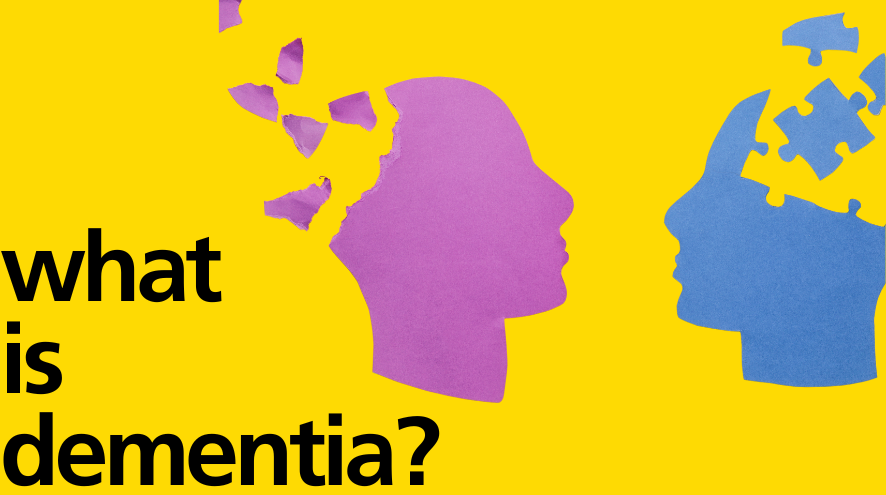What is Dementia?
Dementia is a general term for a decline in mental ability severe enough to interfere with daily life. It is not a normal part of aging.

Dementia is a general term for a decline in mental ability severe enough to interfere with daily life. Dementia is not a single disease; it’s the umbrella term for an individual’s changes in memory, thinking, or reasoning. There are many possible causes of dementia, including Alzheimer’s disease. Disorders grouped under the general term “dementia” are caused by abnormal brain changes. These changes trigger a decline in thinking skills, also known as cognitive abilities, severe enough to impair daily life and independent function. They also affect behavior, feelings, and relationships.
Brain changes that cause dementia may be temporary, but they are most often permanent and worsen, leading to increasing disability and a shortened life span. Survival can vary widely, depending on such factors as the cause of the dementia, age at diagnosis, and other health conditions of the individual.
Many associate dementia with aging. Dementia is not synonymous with normal aging; in fact, young-onset dementia can affect those in their 40s and 50s.
Distinguishing between normal aging and dementia is vital, as brain diseases like Alzheimer's and other dementias exhibit different characteristics, challenging the notion that dementia solely affects the elderly.
Recognizing these symptoms is crucial to understanding dementia's diverse effects.
Most types of dementia exhibit progressive symptoms as more brain cells deteriorate. Early diagnosis is imperative to manage symptoms effectively and enhance the quality of life for individuals affected by dementia.
Types of Dementia
While Alzheimer's is the most prevalent form, other types, such as Creutzfeldt-Jakob disease, Dementia with Lewy bodies, Frontotemporal dementia, Mixed dementia, and Vascular dementia, share similar and overlapping symptoms.
Understanding dementia goes beyond recognizing symptoms; it involves dispelling myths, acknowledging the diverse forms it takes, and adopting a person-centered approach. As the impact of dementia grows, taking steps now is crucial to mitigating its effects on individuals, families, and the healthcare system.
Causes of Dementia
Neurodegenerative diseases, vascular diseases, head injuries and other risk factors can increase the chance of dementia, but the primary causes remain unclear. Researchers are diligently investigating in the hopes of discovering a cure and helping people living with dementia now, thrive.
Read more about Dementia Research in Alberta.
More useful links and resources
What is dementia? This one-page document will introduce you to the basic facts about dementia, including the differences between dementia and normal aging, the importance of early diagnosis, and what to do if you’re concerned that you or someone you know has dementia.
Reduce your risk of dementia.This one-page document will introduce you to the basic facts about how to reduce your risk of dementia.
